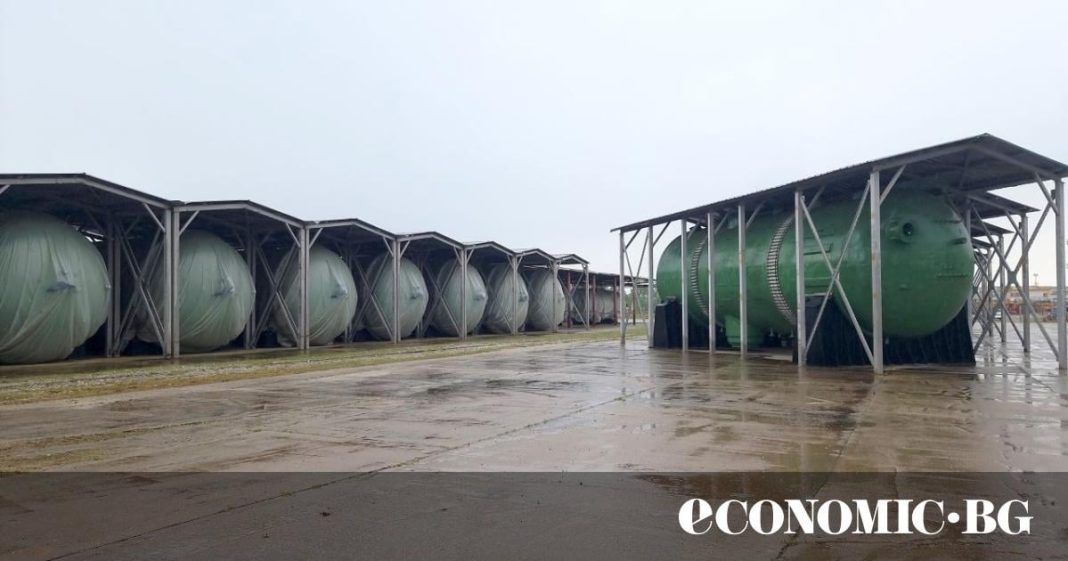After the war in Ukraine, the Belene Nuclear Power Plant project cannot be implemented in Bulgaria.
These are the words of GERB MP and current Finance Minister Temenuzhka Petkova, spoken during discussions on the sale of equipment in 2023.
It was then that Boyko Borisov’s party proposed to start negotiations with Ukraine, which was accepted by the votes of GERB, PP-DB, DPS, and ITN.
The decision repealed another decision from the time of Boyko Borisov as prime minister, dated July 7, 2018, to resume the search for opportunities to build the Belene Nuclear Power Plant in cooperation with a strategic investor.
The chronicle of this unfulfilled nuclear project will soon mark half a century, and throughout all these years its history has been marked more by geopolitical interests, power games, and financial incentives for certain circles than by purely energy considerations and technological progress.
Back in history
If we go back even further in the history of the nuclear project, just five years ago, we find categorical statements that it could not be built without Russia’s participation, or at least that is what the then ruling GERB party claimed.
„Without the participation of the Russian designer and manufacturer of equipment for the Belene NPP, Rosatom, the project cannot be implemented,“ said the then GERB energy minister Temenuzhka Petkova in 2019, when the state launched a procedure to find a strategic investor for the project.
In the next few years, until the start of the Russian war in Ukraine, our country tried to revive the idea of building the plant, looking for options and investors, but after Moscow’s invasion, it seemed unrealistic.
The Belene NPP project was included in the last cabinet of President Rumen Radev, headed by the minister responsible, Rosen Hristov, in the energy strategy for 2023-2053 drawn up at the time. Despite talk of investor interest in Belene, no one has officially declared any. In fact, the plant has mainly attracted the attention of construction companies that want to build it, but not invest in it. The latest scenario for its future included interest from French giant EDF, and in early 2023, a contract was to be signed with it for another study of the possibilities for the plant. The purpose of the analysis, which would have cost at least BGN 10 million, was to determine whether Russian reactors could operate with European technology without dependence on Russia for their implementation and operation. However, this did not happen and negotiations with the French were „frozen“ but not terminated.
We don’t want „Lada“
In the context of the ongoing war and global support for Ukraine, a few months later, the state abruptly abandoned the nuclear project and hastily charted a new course—we will sell the Russian equipment to Kiev. The idea came from GERB – Delyan Dobrev, Temenuzhka Petkova, and the current energy minister, Zhecho Stankov. In just two days, their draft decision was approved by the relevant committee and voted on in parliament. This coincided with the visit of Ukrainian President Volodymyr Zelensky to Bulgaria.
At that time, the government was still comparing the two nuclear projects – the Belene NPP and the new capacity at Kozloduy. This is why Delian Dobrev from GERB compared the idea of building the Belene NPP and Unit 7 at Kozloduy with Russia’s Lada and Germany’s Audi. According to him, if the project (Belene) continues,
we will pay for Lada at the price of Volkswagen, instead of ordering Audi directly and finding the money to pay for it.
Thus, the government categorically decided that it would seek opportunities to sell the Russian equipment and began negotiations, which continued until 20 days ago, when, surprisingly, Deputy Prime Minister Atanas Zafirov of the Bulgarian Socialist Party (BSP) announced that the Zhelyazkov coalition cabinet was abandoning the deal. During the press conference, the socialist leader did not mention what the state plans to do with the Russian reactors, for which the state could have received at least BGN 1.2 billion, but a day later, GERB leader Boyko Borisov clarified the situation.
Interest from Trump, Musk, and Gates
As incredible as it may sound, it turned out that the reactors from the Belene Nuclear Power Plant will not be sold for the time being, as they could be used to build a power plant that would only serve data centers to be built in Bulgaria. This was cited as the reason by GERB leader Boyko Borisov for the BSP’s surprise refusal to sell the unnecessary nuclear equipment to Ukraine.
According to him, one of the world’s top three investment funds advised Bulgaria to wait with the decision and expressed „exceptional interest in building huge data centers in Bulgaria.“
According to Borisov, the appetite for Russian reactors does not stop there – US President Donald Trump is also interested in them and even sent groups of people to see them during his previous administration. To support the idea, Borisov included billionaires Elon Musk and Bill Gates in his explanation.
„I want President Trump, Musk, Microsoft, Bill Gates – they are interested if we can do this – I don’t believe there is a Bulgarian who doesn’t want the most powerful artificial intelligence to be here. I am thinking about the country, if you understand me,“ he added, noting that the reactors are 100% Bulgarian and that refusing to sell them does not mean a return to Russia.
The „Belene“ mystery
Exactly what the government’s vision is behind the idea of building some kind of power plant with Russian reactors, and whether they have in mind the revival of Belene or a new site, remains a mystery for now. The reason is that no one, including Energy Minister Zhecho Stankov, is willing to give a clear answer to questions from journalists and the opposition.
In three different parliamentary questions, PP-DB MPs Ivaylo Mirchev and Martin Dimitrov asked Stankov what the plans are for the Belene NPP and what is happening with the deal with Ukraine for its sale.
In all three of Stankov’s responses, posted on May 2, there is no information about what will happen next.
In accordance with the decisions of the National Assembly of July 6, 2023, and September 11, 2024, a report will be submitted to parliament on the actions taken and the results of the negotiations with Ukraine on the sale of long-cycle equipment owned by the National Electric Company EAD, intended for the Belene NPP project. The final decision on the future of the equipment should be taken by the National Assembly,“ one of the documents states.
Stankov defends the decision not to sell by arguing that nuclear energy is currently experiencing a renaissance in Europe and Bulgaria can take advantage of this.
Currently, the most modern new factories emerging in Europe are the so-called Gigafactory for artificial intelligence and data centers, which require extremely large amounts of electricity. During my visit to the United States, I had the opportunity to meet with such companies, and some of them asked me, „Can you provide us with 1,000 MW?“ That is the capacity of one of our units at Kozloduy at present. That is why, in my opinion, we should explore all possibilities for these two reactors, whether they can serve this purpose—to support the process of creating additional added value in the country,“ he commented on May 4 on bTV.
At first glance, the government’s intentions, as usual, sound attractive – a favorite nuclear project for data centers, Bill Gates, Elon Musk, investments, jobs. However, the reality is different: we are talking about a Bulgarian power plant, but with Russian equipment, which hardly any European or American manufacturer or builder would want to work with, given the current geopolitical situation and uncertainty, and such a project would take at least 15 years to complete. Questions remain about how Belene can be built with Russian reactors and European equipment, and the biggest question is where the money will come from, given the billions the state is spending on new capacity at Kozloduy.
And while we all thought that nearly 50 years later Bulgaria would finally leave this corruption-ridden project behind, it turns out that we may only be beginning to talk about it and spend money on it—without a clear purpose for what we need it for. And we will probably lose irretrievably the BGN 1.2 billion that Ukraine was ready to pay, as it is unlikely that anyone else will want reactors covered in plastic sheeting…
Translated by DeepL.
Източник: Economic.bg


